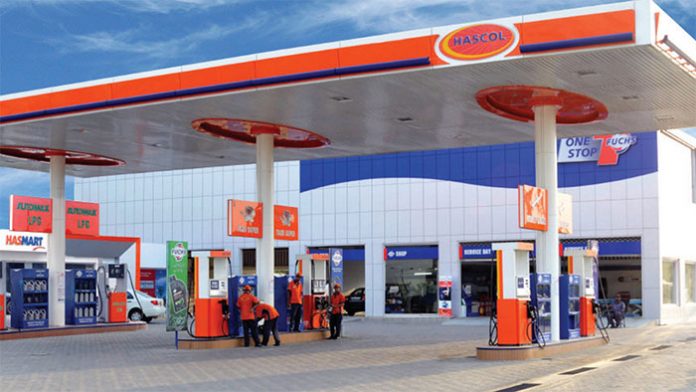Hascol has ended its latest financial year with a colossal consolidated loss of Rs 14.49 billion, and an unconsolidated loss of Rs 14.43 billion, according to its annual report. The company incurred a staggering increase of 92% and 90% respectively from its previous year’s earnings.
These losses have obliterated the hopes of a recovery that Hascol had shown in 2021, when it managed to bring down its losses to one-third of the previous year’s amount from the astronomical figures of Rs 23.54 billion and Rs 23.3 billion in 2020.

Explaining the company’s performance
The company attributed its performance decline to the multitude of adversities that plagued Pakistan in 2022. It underscores the steep devaluation of the Pakistani Rupee against the US Dollar, which soared from Rs. 176.31 in January to Rs. 224.76 in December.
Hascol also highlights how the banking sector witnessed a drastic decline in foreign exchange reserves, compelling the government to prioritise import payments — a predicament that posed difficulties for the banking sector in procuring foreign currency for import payments, and severely hampered the country’s capacity to settle oil import bills and adversely affected the oil industry’s ability to timely import their product requirements.
Inflation remained sky-high at 19.9%, and the central bank persisted with monetary tightening measures, hiking interbank interest rates from 11.68% in January to 17.29% in December — a scenario that exacerbated Hascol’s liquidity crisis who was already grappling with overdue payments to banks and non-banking creditors, during the year. The company states that it was able to navigate the situation with credit support from its main supplier (Vitol), and core banking partners.
“Very bad,” declares Arslaan Arif Soomro, an independent economic analyst, when asked to characterise the market for oil marketing companies (OMCs) over the past year. “To merely say it’s been bad would be a gross understatement.” “Hascol has been steadily gaining market share,” Soomro continues. “However, it’s been an exceedingly challenging time for OMCs.”
“Floods have wreaked havoc on demand, there’s been a pervasive macroeconomic contraction, rupee depreciation exchange losses, razor-thin OMC regulated margins, and escalating financial support costs, all exacerbated by letter of credit issues,” Soomro elaborates on the woes of the sector.
Subsidiaries as bad as the parent
The higher consolidated loss — roughly Rs 6 crore — is attributed to Hascol’s subsidiaries. The company has two subsidiaries: Hascol Lubricants, and Hascombe Lubricants.
Taj to the rescue?
On 16th June, one of Hascol’s competitors, Taj Gasoline, made a bid to acquire a substantial 41% stake in Hascol. Hascol stated that the offer is contingent upon due diligence, price determination and quantum of injection, successful restructuring of its liabilities, and negotiation of transaction documents. However, the company greenlit Taj Gasoline to conduct due diligence of the company.
“The last reported numbers paint a bleak picture, with a staggering Rs 61 billion negative equity and liabilities of Rs 104 billion against assets of only Rs 43.7 billion,” explains Yousuf Farooq, Director of Research at Chase Securities. “Taj will likely engage in discussions with debt holders and restructure the debt in a manner that leaves some value for new equity holders.” Hascol is already in talks with all its lenders to restructure its entire debt of Rs 54 billion.
Farooq continues, “They (Taj) could take decisive action by shutting down loss-making pumps and increasing throughput on the profit-making ones. As current financials are unavailable, it’s difficult to ascertain the current state of the company’s financial health.”




